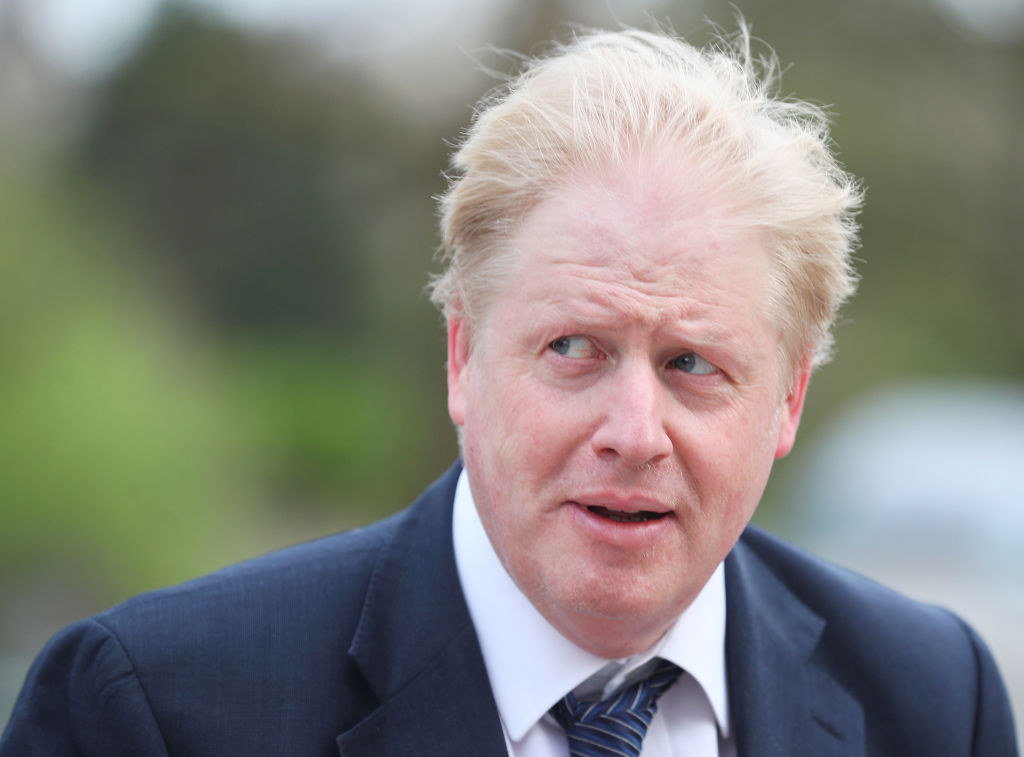In one of Boris Johnson’s opening salvoes of the 2019 campaign he said of Jeremy Corbyn’s Labour party:
‘they detest the profit motive so viscerally…they point their fingers at individuals with a relish and a vindictiveness not seen since Stalin persecuted the kulaks.’
Boris Johnson is no Winston Churchill. But in making that claim, the Prime Minister evoked one of his most illustrious predecessor’s greatest campaigning mistakes.
For in a radio broadcast during the 1945 election campaign Churchill claimed a ‘socialist government’ led by Attlee, aimed to control ‘the entire life and industry of the country … [and] would have to fall back on some form of Gestapo’.
Churchill’s speech is now remembered as one of the most misjudged in political history. It did not change the result: Labour was probably always going to win. And it certainly did not make voters see Attlee as the monster the Conservative leader’s rhetoric implied he might be. But in the eyes of many contemporaries, the speech did transform Churchill’s own image, from being the statesman who won the war to being just another party hack.
Given what we know about Attlee and the government he led – introducing the National Health Service didn’t require torturing of Labour’s opponents – Churchill’s rhetoric sounds absurd. But all he was doing was mobilising the kind of tropes Conservatives at the time believed were useful in persuading voters that Labour’s desire to expand the state posed a terrible threat to their lives and liberty. ‘Remember Belsen’ one party poster warned prior to Churchill’s speech. Making comparisons with the Nazis owed much to the war, of course. It was however more usual for Conservatives to stoke apocalyptic fears about Labour by drawing parallels with the blood-stained Russian Bolsheviks who grabbed power in 1917; this culminated in the fraudulent Zinoviev Letter published during the 1924 election.
How effective was such extremist rhetoric in stemming the Labour tide is difficult to judge. But it largely disappeared from view during the years of consensus following the Second World War.
As Conservative governments generally accepted Labour’s expansion of the state the party had less scope and reason to make such attacks. It was however revived when Britain’s economic crisis of the 1970s polarised politics once more.
Margaret Thatcher was not averse to claiming Labour wanted to make Orwell’s ‘1984’ a reality while Tony Benn genuinely thought she represented the first stages of fascism. But after Thatcher had laid down the basis for her own very different kind of market-based consensus in the 1980s, one broadly accepted by Tony Blair, politicians’ language became less intemperate again.
Since the 2008 banking crash political discourse has become nasty once more. As a consequence, Johnson’s claims hardly made the same kind of impact – good or bad – as Churchill’s ‘Gestapo’ speech.
One reason for that is he has less far to fall in public regard than Churchill: few outside his immediate circle see Johnson as a statesman.
Another is that Conservatives have been carelessly throwing around such accusations about their Labour opponents for years. In 2013, David Cameron even described Ed Miliband’s modest proposal to introduce a price freeze on energy prices as ‘Marxist’. By repetition they have devalued their own language. The ongoing Brexit debate has also generalised this rhetorical inflation: accusations of treachery have almost become commonplace.
But if Boris Johnson is no Churchill then Jeremy Corbyn is no Attlee. Perhaps – as many Conservatives (and even some former Labour MPs) believe – Corbyn really is a Marxist. What that means in practical terms is however so far as most Britons are concerned obscure.
Certainly, Labour’s campaign until now has focused on the undoubted problems of the National Health Service thanks to what is generally accepted to be its under-funding. If that is ‘Marxism’ then many voters might reply: bring it on.
In less fractious times, Johnson’s suggestion that Corbyn’s desire to bring the state back into economic life and rebalance relations between workers and employers might have parallels with Stalin would have been quietly ignored by his colleagues.
But it seems clear that the Prime Minister’s lead will be followed by others in his party. Following his assertion, one of Johnson’s ministers Nadhim Zahawi even told Andrew Neil he couldn’t say if Jeremy Corbyn will shoot rich people or not. Such exaggeration might be comic if words did not have consequences. If Johnson wants to unite a post-Brexit Britain he going an odd way about it.
Steven Fielding is professor of political history at the University of Nottingham and is writing ‘The Labour Party: from Callaghan to Corbyn’ for Polity Press, to be published in 2021







Comments